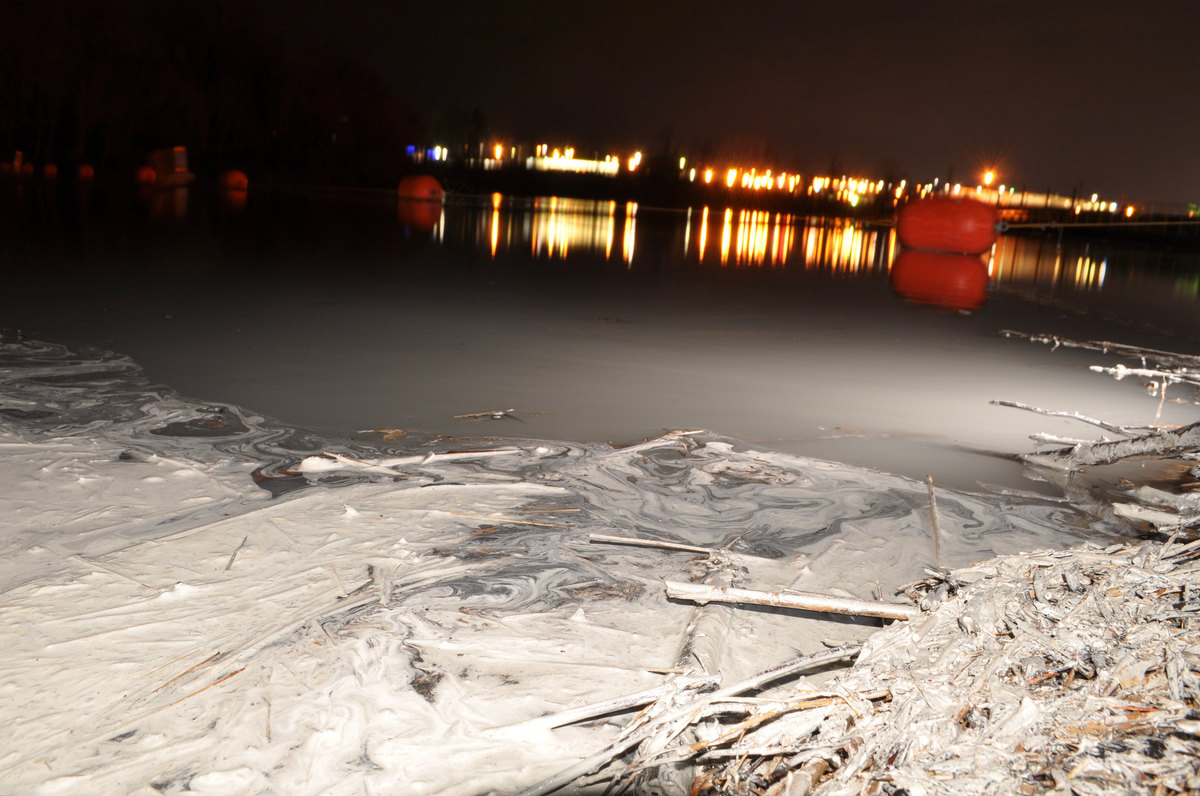 Federal prosecutors have filed criminal charges against Duke Energy with years of illegal pollution from coal ash dumps at five North Carolina power plants.
Federal prosecutors have filed criminal charges against Duke Energy with years of illegal pollution from coal ash dumps at five North Carolina power plants.
The three U.S. Attorney's Offices covering the state on Friday all charged Duke with felony violations of the Clean Water Act. The prosecutors say the nation's largest electricity company engaged in unlawful dumping since at least 2010 at coal-fired power plants in Eden, Moncure, Asheville, Goldsboro and Mt. Holly.
US charges Duke Energy with illegal pollution from 5 coal ash dumps
‘Megadrought’ Coming to U.S.
 The long and severe drought in the U.S. Southwest pales in comparison with what’s coming: a “megadrought” that will grip that region and the central Plains later this century and probably stay there for decades, a new study says.
The long and severe drought in the U.S. Southwest pales in comparison with what’s coming: a “megadrought” that will grip that region and the central Plains later this century and probably stay there for decades, a new study says.
Thirty-five years from now, if the current pace of climate change continues unabated, those areas of the country will experience a weather shift that will linger for as long as three decades, according to the study, released Thursday.
GOP lawmakers push EPA to rethink clean water rule
 In a year the Republican-controlled Congress is expected to take a significant whack at President Barack Obama’s environmental agenda, GOP lawmakers on Wednesday told top environmental officials they should scrap what was once a fairly obscure proposal to define what is and isn’t considered a body of water by federal law.
In a year the Republican-controlled Congress is expected to take a significant whack at President Barack Obama’s environmental agenda, GOP lawmakers on Wednesday told top environmental officials they should scrap what was once a fairly obscure proposal to define what is and isn’t considered a body of water by federal law.
In an unusual joint hearing involving the Senate Environment and Public Works Committee and the House Transportation and Infrastructure Committee, the Republican majority that now controls both houses of Congress showed it is intent on trying to derail the president’s environmental agenda in his last two years in office.
Second Oil “Bomb Train” Derailment in Philadelphia in One Year
Today the second major oil “bomb train” derailment occurred in Philadelphia, risking residents’ lives, endangering drivers on one of the nation’s busiest highways, I-95, and putting waterways at risk. One year and eleven days ago, early on Martin Luther King Day 2014, seven cars carrying Bakken Shale crude derailed over the Schuylkill River in Philadelphia in a “near miss from disaster.”
That derailment put the entire University of Pennsylvania medical complex, the Schuylkill Expressway, the Veterans Administration, Children’s Hospital, and other major institutions at risk, along with a chunk of Philadelphia’s residential population too big to safely evacuate.
Scientists puzzled, worried by rapid draining of Greenland lakes
 Two subglacial Greenland lakes thought to be stable -- pockets of icy water accumulated over many years -- are now gone, drained in a matter of weeks. And scientists aren't exactly sure why or what it means.
Two subglacial Greenland lakes thought to be stable -- pockets of icy water accumulated over many years -- are now gone, drained in a matter of weeks. And scientists aren't exactly sure why or what it means.
In one spot along Greenland's massive ice sheet, what was once a holding cell for more than 7 billion gallons of water (supplied by melting ice caps), is now a cold, empty crater, stretching some 1.2 miles wide and 230 feet deep.
NASA, NOAA proclaim 2014 hottest year on record
 The official numbers are in, and they confirm what most already suspected: 2014 was the hottest year on record. Temperature records were shattered in places across the globe, including in much of Europe, parts of South America, as well as in China and portions of Russia and the Far East.
The official numbers are in, and they confirm what most already suspected: 2014 was the hottest year on record. Temperature records were shattered in places across the globe, including in much of Europe, parts of South America, as well as in China and portions of Russia and the Far East.
As NASA and the National Oceanic and Atmospheric Administration announced Friday, average global temperatures on land and sea surfaces collected across the planet were 1.24 degrees Fahrenheit above the 20th century average.
Methane plume over western US illustrates climate cost of gas leaks
Satellites that sweep over the north of the energy-rich state can spot the gas as it escapes from drilling rigs, compressors and a pipeline snaking across the badlands. In the air it forms a giant plume: a permanent methane cloud, so vast that scientists questioned their own data when they first studied it three years ago. “We couldn’t be sure that the signal was real,” said Nasa researcher Christian Frankenberg.
More Articles...
Page 33 of 201

 Environmental Glance
Environmental Glance






























